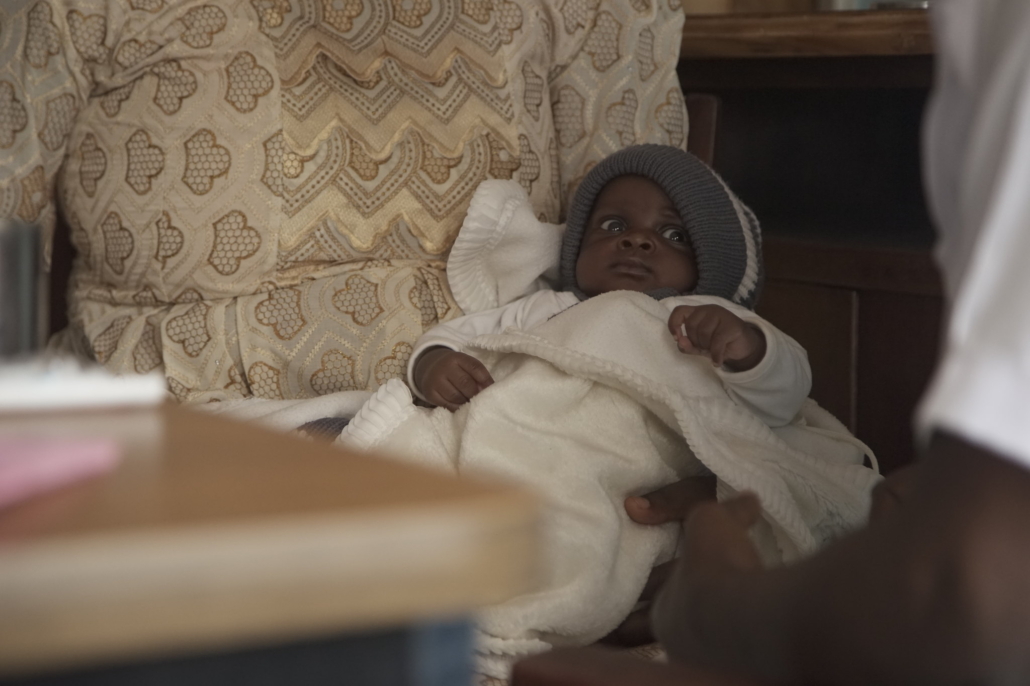Addressing Child Malnutrition in Nigeria
 Child malnutrition in Nigeria and globally presents a significant problem that leads to the difficulties of stunted growth and a greater risk of diseases during a child’s most vulnerable years. A lack of the necessary nutrients can hamper a child’s physical and mental development, leading to long-term problems like an increased risk of illnesses owing to an underdeveloped immune system. Estimates have indicated that 216 million children in Africa suffer from malnutrition, and it is the second highest killer of children, just after malaria.
Child malnutrition in Nigeria and globally presents a significant problem that leads to the difficulties of stunted growth and a greater risk of diseases during a child’s most vulnerable years. A lack of the necessary nutrients can hamper a child’s physical and mental development, leading to long-term problems like an increased risk of illnesses owing to an underdeveloped immune system. Estimates have indicated that 216 million children in Africa suffer from malnutrition, and it is the second highest killer of children, just after malaria.
Child Malnutrition’s Economic Impact
These problems also go beyond the physical of the individual with long-lasting impacts on the social and economic state of their community. The Economist notes that some of the most significant impacts of childhood malnutrition on a country’s economy come from the reduction in adult salary linked to childhood malnutrition and the ensuing underdevelopment, which also slows the growth of that economy. Other significant problems like poverty are heavily affected by childhood malnutrition as countries with slowed economic growth find themselves in a cycle of poverty that child malnutrition perpetuates.
The problem this has on a country’s economy is severe, as worldwide undernutrition costs the global economy more than $3 trillion a year. Malnutrition is not just a problem that specific countries or humanitarian agencies should worry about. It is a worldwide problem that affects all of our economies and societies. The full nutritional development of children should be a standard that will allow us to propel the presence of other country’s economies into the global market.
Colourful Giggles
Colourful Giggles is a Nigerian company dedicated to providing the nutrients vital to babies during their development. Devoted to offsetting some of the problems encountered by local mothers looking for nutritional products and reducing child malnutrition in Nigeria, Colourful Giggles uses local flavors and ingredients that allow their products to be cheaper than the imported alternatives. With the use of local flavors like cashew nuts and pawpaw, the company intends to combat some of the problems mothers face when raising babies with imported nutritional foods, namely how it affects their taste buds.
Adepeju Jaiyoeba, the founder and CEO of the company, noted that amongst her own children, she could note how imported nutritional foods could turn a baby away from the flavor of other local foods and how such a change can financially impact families given that imported goods are more expensive. As such, Colourful Giggles tackles not only the problem of child malnutrition in Nigeria but also among the children in Africa, which remains at a figure of around 216 million, but does so in a way that promotes the local economy. The ingredients are 100% locally sourced and ensure that many more mothers can provide all the necessary nutrients to their children. Through Jaiyoeba’s diligence in researching and testing vitamins and food.
Humanitarian Aid and the Way Forward
However, these are not issues that are not receiving attention. UNICEF remains at the forefront of the global battle against child malnutrition as several programs, including national support in coordination of response, technical support and strengthening of already established national systems to tackle malnutrition where they can. A recent example of some of the scale of the work done includes the financial support from the EU Humanitarian Aid Department, which aided UNICEF in responding to the crisis in Haiti affecting children with a contribution of €2.5 million.
Despite the staggering figures of global child malnutrition, companies like Colourful Giggles and organizations like UNICEF remain steadfast in the amount of humanitarian aid they provide to reduce child malnutrition. It is a grand task that requires the larger scale movements of these companies previously mentioned and the donations of those who can look out for future generations. These children who suffer represent a large part of our global future and deserve protection and aid.
– Chinua Ebereonwu
Photo: Flickr
